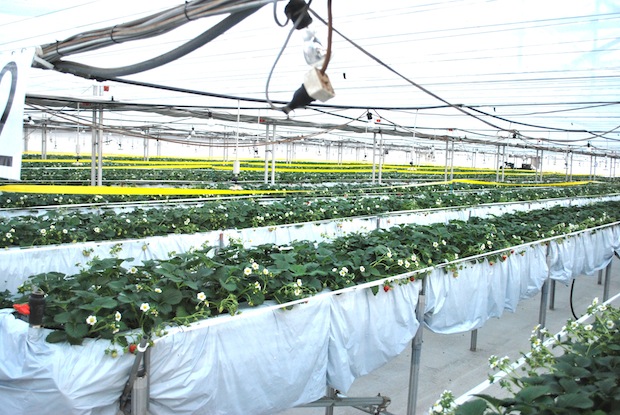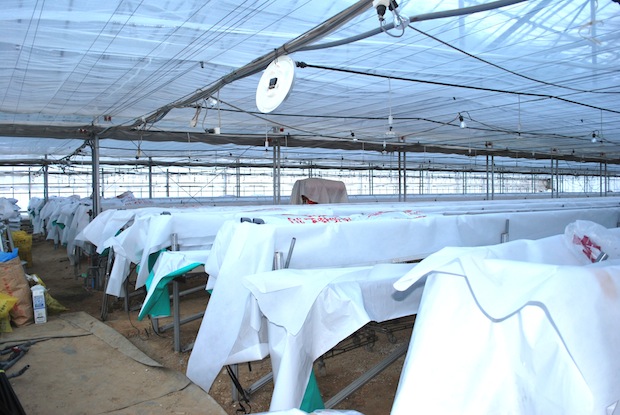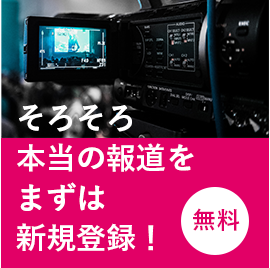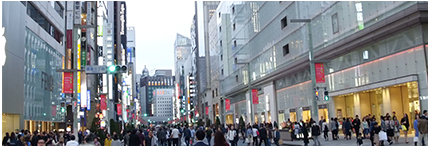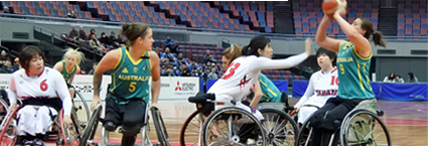〈Voice of Fukushima, N.1〉 The Greenhouse Strawberry Farm of Koriyama By AYANO KUBOTA
Voice of Fukushima, N.1
The Greenhouse Strawberry Farm of Koriyama
By AYANO KUBOTA
The voice of Ms. Ayano Kubota is regularly heard on the radio. She is herself a TV reporter as well. She is from Fukushima and since 2011, every Monday she works as an anchorperson for the Koriyama local radio program “Asa Koko”. She plays a proactive role in the coverage of issues related to Fukushima and is actively involved in the project “Voice of Fukushima”.
“‘Uhm…it’s so sweet!’ I’m so delighted to hear such compliments from customers who drop by with their children to enjoy picking strawberries.” (Kazuo Kokubun, President of the Koriyama City Strawberry Farm)
The Koriyama Strawberry Farm is the only greenhouse compound in the city where customers can enjoy picking strawberries. Twelve years have passed since it was opened in 2000. It is a thousand-square-meter space with seven greenhouses. Mr. Kazuo Kokubun doesn’t really find his interest in aeroponics or hydroponic greenhouse cultivation. He prefers to cultivate his strawberries using soil. He thinks that strawberries cultivated in a mineral rich soil are of better taste.
Nonetheless, the cultivation system on staged facilities spares customers the effort to bend down while picking strawberries. Also, the cleaning of the greenhouses is easier, and such methods are appropriate for maintaining facilities clean and neat.
“With the nuclear accident of March 2011, most of the equipment for cultivating strawberries has been damaged. We make every effort to fix it using government funding, but for now strawberries can be picked from just four greenhouses. Due to last year’s catastrophe, the number of customers has dwindled. We cannot afford to shut down the strawberry farm, though. We don’t deliver our strawberries to the market place. We only make the farm available to customers so that they can come and pick strawberries for themselves. It is not only because we are short of staff and time for packaging. We are much more interested in drawing people to our city by offering enjoyable strawberry picking services.
Mid-February is the ideal time for picking tasty strawberries. At his garden, Mr. Kazuo Kokubun cultivates two species of strawberries, namely the Fuku-haruka and the Tochi-otome. Though the favorable moment for picking was yet to come, a sweet and sour smell was emanating from the greenhouses and from the green forest of strawberry leaves, fully ripe fruits could easily be spotted.
“‘Uhm…it’s so sweet!’ I’m so delighted to hear such compliments from customers who drop by with their children to enjoy picking strawberries at our farm. The number of children has recently dwindled, though.”
The Koriyama Strawberry Farm requests the city radioactivity test bureau to check the levels of radioactivity of strawberries. The results have shown no radioactive contamination, at all. “This is because we took all measures to maintain our facilities neat and clean”, said Mr. Kokubun.
“In the neighboring area of Hiwada, high levels of radioactivity have been recorded. Before the operations of decontamination, the level of radioactivity reached 27 microsieverts in some side ditches. I have thirteen grand-children. The youngest is 3 years old and the oldest is a first grade High School student. Radioactive pollution is scary. That is why people here initiated cleaning and decontamination operations of roads leading to schools on their own.
“After the nuclear accident, my whole household fled to Niigata for two weeks. We returned home, though. It is because we had work waiting for us here. No reasonable excuse could allow us alone to keep fleeing, while the employees were diligently working here at the farm.”
All around Fukushima Prefecture, everybody is anxious and angered because of the nuclear accident. Despite that, resilient and showing an unflinching courage, Mr. Kazuo Kokubun continues to take care of his family, bravely mending his farm and protecting his staff, here, in Fukushima.
“There is nothing to do, but to wait and see how national, prefectural, and municipal authorities are going to make people understand that agricultural products from Fukushima are safe. The nuclear accident is a tragedy: to begin with, everyone is badly affected. Nuclear plants are to be done with. No nuclear accidents would happen without nuclear plants!”
(Translated from Japanese by Willy Lukebana Toko)
(c)Ayano Kubota/NOBORDER Inc.



